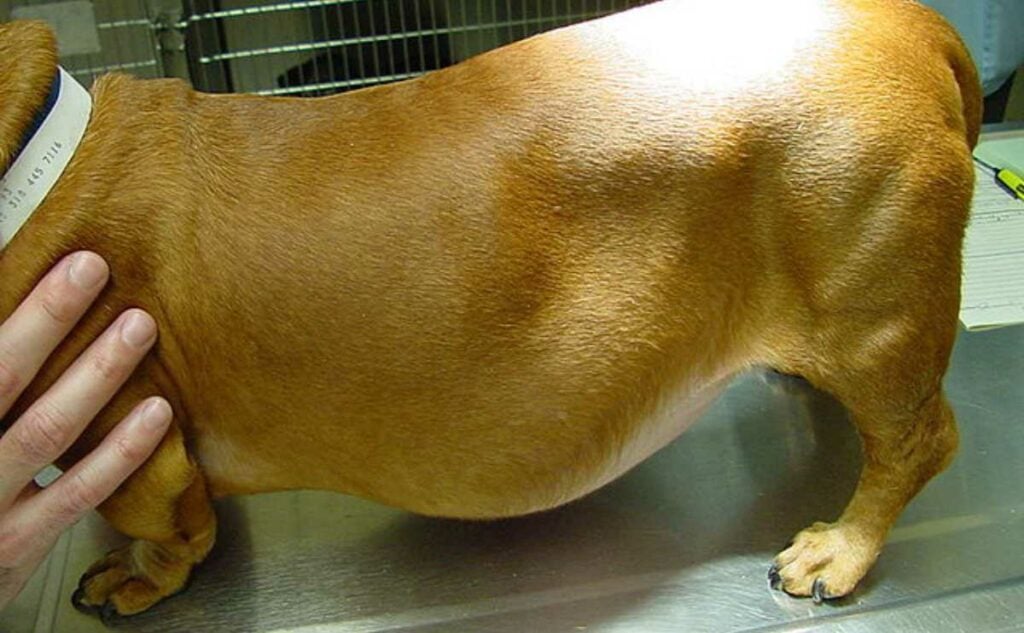Has your vet recently detected elevated liver enzymes in your dog’s routine bloodwork? What does this mean? While mild increases often resolve on their own, this isn’t always the case. Elevated liver enzymes aren’t a condition themselves but may signal liver damage, disease, or other underlying health concerns.
Veterinarians may need time to identify the cause of these abnormal results, and not all clearly explain findings. Here, we’ll explore potential causes of elevated liver enzymes, necessary diagnostic steps, and treatment options.

What Does The Liver Do?
Understanding the liver’s role clarifies why enzyme elevation matters. A dog’s liver, like a human’s, performs critical functions: detoxifying the body, storing vitamins, metabolizing energy, producing bile for digestion, processing medications, and generating proteins for blood clotting.
- Removing toxins from the body
- Storing vitamins
- Metabolizing energy
- Creating bile to aid digestion
- Breaking down medications for absorption
- Producing proteins for blood clotting
Elevated enzymes often indicate the liver isn’t functioning optimally, but they don’t confirm specific disease—they flag a need for deeper investigation.
Raised liver enzymes act as a warning sign of potential issues, indicating cell damage but not specifying the cause. Further tests—guided by blood work, physical exams, and medical history—are needed to identify the root problem.
– Dr. Rebecca MacMillan, BVetMed, BSAVA, PGCertSAM, MRCVS, veterinarian and surgeon
What Causes Elevated Liver Enzymes In Dogs?

Many factors can elevate liver enzymes, from temporary blood test blips to infections, medications, toxins, or underlying conditions. Identifying the cause is key to effective treatment.
Diseases
Conditions like diabetes, Cushing’s disease, pancreatitis, hyperthyroidism, and liver cancer (affecting 1% of dogs) can trigger enzyme elevation, signaling early liver stress.
Medications
Certain drugs—steroids (e.g., prednisone) and antiseizure medications (e.g., phenobarbital)—may raise enzyme levels. Vets monitor liver function closely when prescribing these.
Toxins
Toxins such as heavy metals, herbicides, insecticides, rodent poisons, mold-produced aflatoxins, amanita mushrooms, Sago palms, blue-green algae, and acetaminophen can damage the liver, elevating enzymes.
Infections
Infections—viral (canine adenovirus), bacterial (leptospirosis, Tyzzer’s disease), fungal (Valley Fever, histoplasmosis), and parasitic (toxoplasmosis)—can inflame the liver, increasing enzymes. Vaccines exist for adenovirus and leptospirosis.
Genetic Predisposition
Breeds like Bedlington Terriers, Dalmatians, and Dobermans may inherit copper storage disease, while others (e.g., Cocker Spaniels, Labradors) face chronic hepatitis. Portosystemic shunts—a birth defect—are common in Australian Cattle Dogs, Maltese, and Yorkshire Terriers.
What Foods Can Cause Elevated Liver Enzymes In Dogs?

Balanced dog food rarely causes enzyme elevation, but high-fat meals before testing may temporarily raise levels. Toxic human foods—xylitol (in peanut butter), grapes, raisins, chocolate, and nuts—pose risks. Over-supplementing vitamins (A, D, iron, copper) can also harm the liver; consult your vet before adding supplements.
Symptoms Of Elevated Liver Enzymes In Dogs
Elevated enzymes don’t cause symptoms—the underlying issue does. Early signs may be subtle (mild weight loss, reduced appetite). Advanced liver problems often present with lethargy, vomiting, diarrhea, increased thirst/urination, jaundice, confusion, or seizures.
Early detection is key. If your dog seems unwell, consult your vet to assess liver health—livers can regenerate with timely care.
Diagnosis: Determining The Cause Of High Liver Enzymes In Dogs

Blood tests measuring ALT, ALP, AST, and GGT levels detect elevated enzymes. Asymptomatic dogs may trial antibiotics, antioxidants, or ursodiol. Persistent elevation warrants further tests: bile acid stimulation, infectious disease screens, ultrasound, or liver biopsy.
“Each case is unique. Raised enzymes can signal primary liver disease or reactions to other issues like heart or hormonal problems,” notes Dr. MacMillan. “Imaging (ultrasound) and biopsies often clarify the cause.”
Treatment Of Elevated Liver Enzymes In Dogs

Treatment depends on the cause. Chronic hepatitis may require anti-inflammatories or dietary changes. Copper storage disease often uses d-Penicillamine, zinc, or low-copper diets. Supplements like SAMe, milk thistle, or Denamarin may support liver health, but always follow your vet’s guidance.
Prevention
While not all causes are preventable, steps include feeding AAFCO-compliant diets, regular vet checkups, vaccinations (hepatitis, leptospirosis), and avoiding toxic foods/plants.
How Pet Insurance Can Help
Liver disease and other conditions can be costly. Pet insurance covers a portion of vet bills, easing financial stress. Explore our guides to determine if it’s right for you and find top providers.

